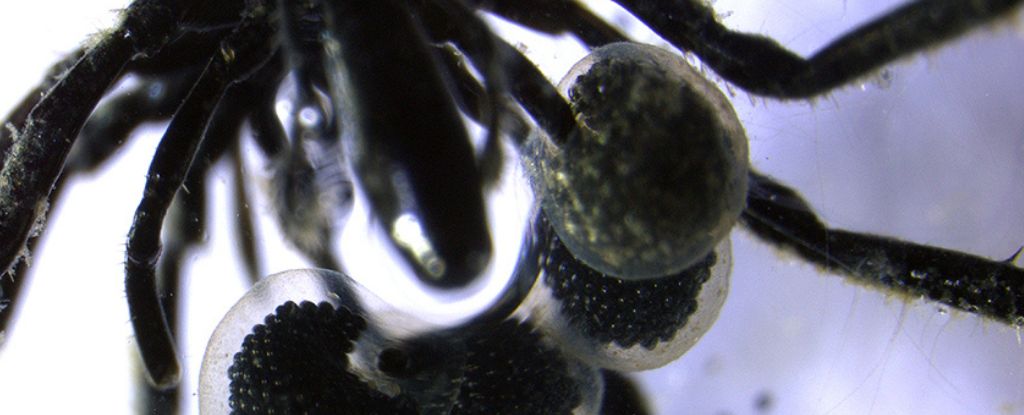New Discovery of Deep Sea 'Spiders' Is Unlike Anything We've Seen Before - ScienceAlert
4 days ago

In a remarkable discovery that has captivated marine biologists, researchers have identified three new species of deep-sea 'spiders' that engage in a unique form of symbiotic relationship by farming methane-eating bacteria on their own bodies. These arachnids, belonging to the previously uncharted depths of the ocean, showcase an extraordinary adaptation that allows them to thrive in environments characterized by extreme conditions, including high pressure and low light. Unlike many animals that rely on traditional feeding methods, these deep-sea spiders have developed a fascinating biological partnership that enables them to utilize methane as a primary energy source, fundamentally altering our understanding of nutrient acquisition in deep-sea ecosystems. The newly discovered species were found in hydrothermal vent communities where methane is abundant, providing an ideal environment for the bacteria. These spiders possess specialized structures on their exoskeletons that serve as a substrate for the bacteria to cling to and flourish. This symbiotic arrangement not only benefits the spiders by providing a steady source of nutrition but also aids the bacteria, which in turn thrive in the nutrient-rich environment created by the spiders’ metabolic processes. This interaction highlights a complex form of mutualism, wherein both organisms rely on each other for survival, a relationship that is particularly striking given the challenging conditions of their habitat. The implications of this discovery extend beyond the realm of marine biology. Understanding the metabolic pathways and ecological roles of these deep-sea spiders could shed light on the evolutionary adaptations that enable life to flourish in extreme environments. Researchers are eager to study the genetic and biochemical mechanisms behind this unique symbiosis, which could reveal insights into similar relationships in other ecosystems, including those on land. Furthermore, these findings prompt a reevaluation of the ecological dynamics at play in deep-sea environments, where organisms often interact in complex and unforeseen ways due to the unique challenges they face. As scientists continue to explore the depths of the oceans, this discovery opens up exciting avenues for future research. The potential for additional species exhibiting similar symbiotic relationships suggests that our understanding of marine life is still in its infancy. Each new finding not only enhances our knowledge of biodiversity but also raises important questions about the resilience and adaptability of life in extreme environments. By delving deeper into the lives of these enigmatic deep-sea spiders and their methane-eating partners, researchers hope to illuminate the intricate tapestry of life that exists beneath the ocean's surface, ultimately enriching our comprehension of the natural world.